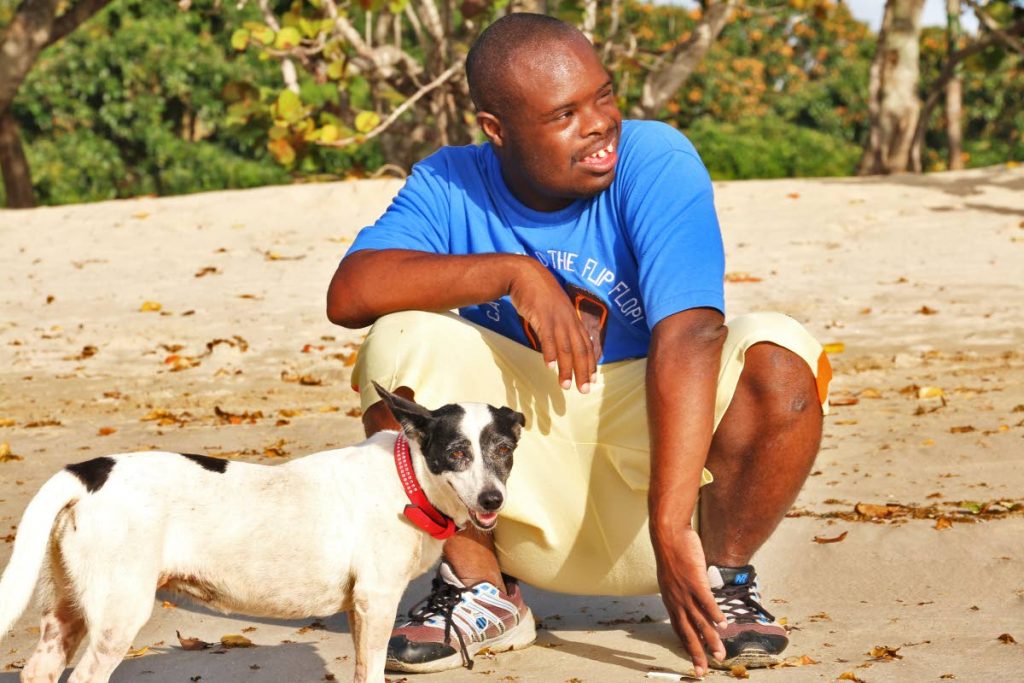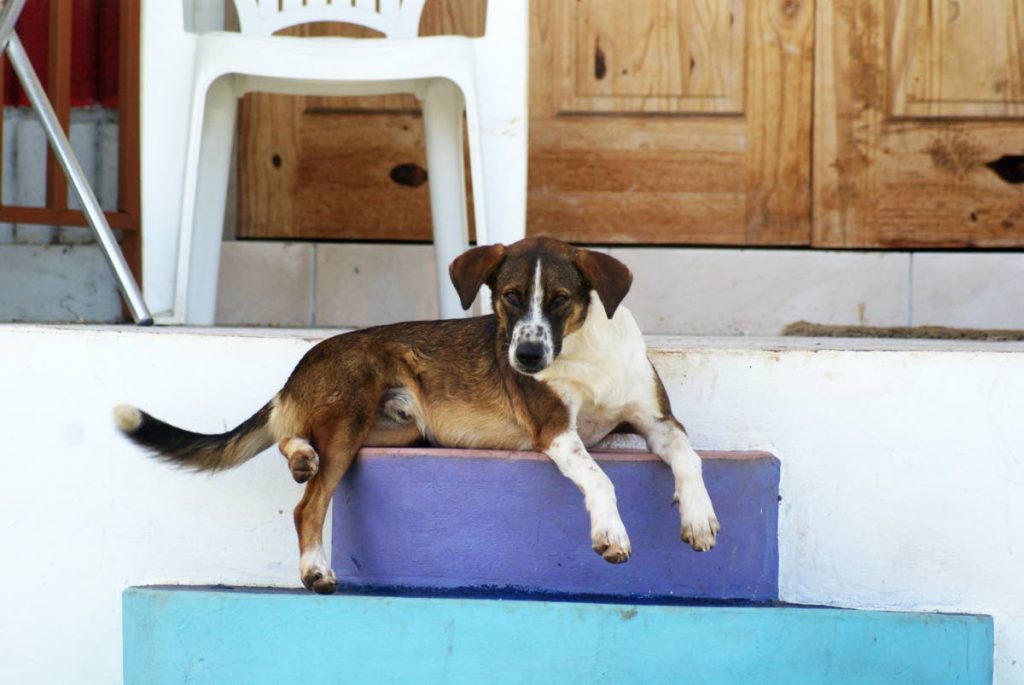Buccoo Crisis

Elspeth Duncan
In setting high animal welfare standards for the benefit of tourism, the World Society for Protection of Animals (WSPA) highlights the “Five Freedoms for Animal Welfare”:
Freedom from hunger and thirst
Freedom from discomfort
Freedom from pain, injury and disease
Freedom to express normal behavior
Freedom from fear and distress
These points are also applicable to human beings. Animals and humans are sentient beings, equally deserving of respect for life and wellbeing.

The following report highlights how easily this standard can be threatened.
On the morning of Friday, July 27, Healing with Horses (HWH) park worker, Jayon Braithwaite, turned up for work, expecting to be met, as usual, by his “best friend” Fuchur, a young playful dog who lived at the park.
Instead, Jayon found the dog dead in bushes near a piece of galvanized iron, legs stiff, with swollen body “bubbling and melting”, as poison consumed him from within.
“The body like it was going to explode,” Jayon lamented.
A bowl that had contained poisoned food lay nearby.
According to his employers, Jayon, a differently-abled adult (former student of Happy Haven School and the Technical Vocational School), has not been the same since the incident.
In the same area a few weeks before, five dogs to whom countless visitors and volunteers had become very close over the years, were poisoned. At the same time, dogs elsewhere in Buccoo were poisoned in what appeared to be a mass culling of the canine population.
The laws of the land state that “any person who cruelly beats, ill-treats, starves, overrides, overloads, abuses, tortures or otherwise maltreats any animal” is liable to be fined or imprisoned.
How does one follow up on a crime that is committed in secret? The mere presence of police within a community after such a serious incident could have an impact on the psyche of the perpetrator(s), especially if the police speak about the act, ask questions and make the laws clear to as many people as possible.
The HWH mission statement promises an “integrated, inspiring and safe space” for all—humans and animals. More stringent steps must now be taken to ensure that delivery of this promise is not threatened by senseless human acts.
Apart from the fact that innocent creatures do not deserve such a painful death, poisoning is a grave matter (no pun intended) considering that many differently-abled children frequent the upper Buccoo area for equine therapy and nature experiences. Especially after the death of Fuchur (and the many birds and chickens who also consumed the poisoned food), serious concerns have been raised about the placement of poisoned substances in and around the normally safe environment. Children, especially curious ones, are likely to investigate unfamiliar objects left lying around. One does not need to imagine what could happen with the touch of little hands to a deadly container, followed by the biting of nails or the sucking of a finger.
Concerned citizens are adamant that authorities seriously address the matter of poisoning—not only in Buccoo, but around the island. Various people suggest that one must have a license to purchase poison. In a culture where poisoning of animals is common, easy access to fatal products should be strictly limited.
Several visitors (who had stayed in Buccoo and were friendly with the dogs) were shocked and saddened when informed of their deaths.
Sarah Eckert, a regular UK visitor, wrote:
“Last time I stayed in Tobago I brought my 2 adult children and my granddaughter and we stayed in the yellow house in Galla Street for a month. Goldy, Charley & their brothers and sisters became like our own dogs for the duration, always greeting us when we arrived or left the house. They were loving, well behaved dogs and at no time did they present any threat to us. I cannot even tell my 7-year old granddaughter what has happened to them. She will be devastated.
“I am surprised that this can happen in a community like Buccoo. I have always felt safe staying here, but now I wonder what type of persons are in the vicinity. Someone should be apprehended for this cruel and unnecessary behavior, not least because so many people visit Buccoo to spend time at Healing With Horses and will not continue to do so whilst these crimes are perpetrated.”
Highlighting the “magic” that occurred when children who are normally terrified of animals, made friends with both horses and dogs, European volunteer Laura Conigniello lamented at opportunities lost through the tragic deaths: “Dogs have also a right for a life. It destroys all experiences the children learned and will learn. Damaging animals or people is wrong!!”
In 2017, Jo and Cliff Lake of England witnessed the poisoning of their Tobagonian host’s dogs (who were secured in their fenced yard) by a neighbour. The Lakes’ in-person report to the police was met with apathy. Their subsequent letter to tourism officials about the incident (and other matters that had marred their otherwise enjoyable holiday) never received a response.
In a follow up letter to a local animal organisation, Cliff Lake wrote: “Due to our experiences and the lack of interest in what we see as a serious criminal offence (cruelty to animals) we will not be returning to Tobago, neither will we recommend it to any of our friends and acquaintances.”
How many other visitors will feel this way and when will action be taken to address this killer of a problem?
Tobago, let us set an example for the Caribbean and world by placing both animal and human welfare and protection high on the list of priorities for the island’s standards.
As the WSPA also advises: “All those involved in tourism – businesses, NGOs, government agencies, and travelers—will benefit from education and increased awareness of animal welfare issues and the Five Freedoms.”
This can be achieved through brochures, media campaigns, websites, videos and training workshops to help change behaviours and improve community and industry practices.

Comments
"Buccoo Crisis"